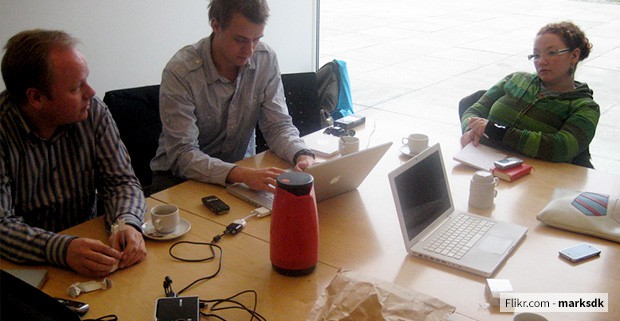You know the old saying about when you assume: it makes an … well, you can look that one up. The point is, when we make assumptions, we are not generally getting to the bottom of the real issue.
As you know, clients are notorious for changing almost anything and everything they can think of, but they don’t often realize their actions have an impact.
This is especially true when we are not being honest and direct in our communications with our clients.
“Creatives usually make assumptions because they are uncomfortable looking like a pest by asking too many questions. Others avoid asking questions entirely because they think clients will perceive them as inexperienced. However, asking the right questions actually makes you appear detail-oriented, inquisitive, and knowledgeable,” says Emily Cohen in The 5 Assumptions That Will Sabotage Your Client Work.
Let’s look at a few assumptions that will blow up your client relationships before the work is even done.
It’s all about the money.
Believe it or not, not all clients put price above all else. Often industry expertise, experience, creativity and even trust have an influence over the budget. It’s most important to understand the selection criteria.
“Cohen suggests asking potential clients:
- What criteria do you look at in selecting a creative partner and how would you weigh those in order of priority?
- What other creative partners are you considering (so we can tell you what makes us different)?
- Have you worked with a creative partner before and what worked and didn’t work about that relationship?
Clients have done their homework.
Just because you have put a lot of thought into your brand, websites and proposals, doesn’t really mean your clients have. Many of them rely on referrals, says Cohen, and they will choose your firm based on a personal connection. It’s best to try to sit down with them, if possible, for an in-person meeting before writing a proposal or at least present your proposal in person.
Clients understand the impact of project changes.
“The worst assumption creatives can make is that clients understand that their delays or changes (in approvals, in content complexity or deliverables, or in scope) have impact,” says Cohen.
As you know, clients are notorious for changing almost anything and everything they can think of, but they don’t often realize their actions have an impact. You must be sure to clearly communicate that any changes to a project will have consequences (in a professional manner, of course).
“Clients will change their behavior, pay additional fees or change the schedule if they see the consequences of their behavior,” Cohen adds.
Clients should never hear “no.”
“No” is just another word in the English language. And it’s one you should be comfortable with because not everything a client asks for, or demands, is a good idea. The client is not always right, and it is your job to help them understand that there are better options. According to Six Good Ways to Say No to Your Client, saying no has many benefits, for both you and your clients:
- It helps you to gain the customer’s respect when they realize you are not a pushover.
- You are paid to tell the client what you think, even if it is uncomfortable. The customer wants your expert opinion.
You protect yourself and maintain personal integrity. You can’t do everything for everybody, and you need to be compensated fairly for what you do.
